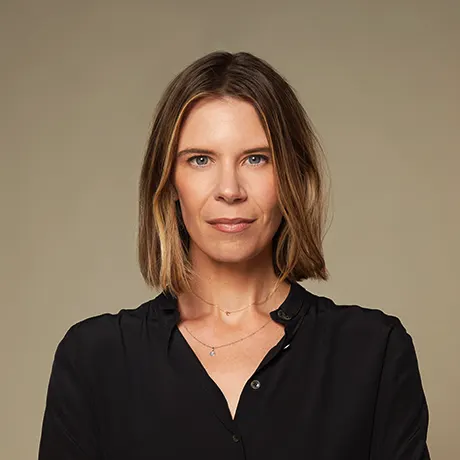Stay in the know
All our latest podcasts delivered right to your inbox.
Pediatrician Josh Maxwell had two “aha” moments that led to his ADHD diagnosis. One came from talking with a teenage patient whose ADHD symptoms were different from what he’d seen in other patients. It wasn’t that the teen couldn’t pay attention, but rather that they were paying attention to everything all at once. Josh related to that feeling.
Josh’s other ADHD “aha” came from his experience with depression. After starting antidepressants, he could more clearly see his own ADHD symptoms. Now, the coping strategies he’d put in place for himself, the masking, and even the childhood poem he wrote about fidgeting made perfect sense.
Listen to this episode of ADHD Aha! to learn what Josh would rename ADHD, and why pediatrics is the only specialty for him.
Related resources
Episode transcript
Dr. Joshua Maxwell: My first big "aha" moment was with one of my patients when he came in for an evaluation of ADHD and did not meet the classic criteria, saying "It's not that I can't focus, it's that I focus on a million things at once," and realized that I do the exact same thing.
Laura: From the Understood Podcast Network, this is "ADHD Aha!," a podcast where people share the moment when it finally clicked that they or someone they know has ADHD. My name is Laura Key. I'm the editorial director here at Understood, and as someone who's had my own ADHD "aha" moment. I'll be your host.
I'm here today with Dr. Joshua Maxwell. Josh is a pediatrician based in Utah who's also a listener who wrote in. Welcome, Josh. Thanks for being here today.
Josh: Thanks for having me.
Laura: And for our listeners who obviously can't see us, I have to say that Josh is in his scrubs, this all feels very legit. Thank you so much. Thank you for listening. Thank you for writing in to tell us about your "aha" moments. And I think to get started, let our listeners know, when did you get diagnosed with ADHD?
Josh: So, it's been very recently, actually just a couple of months ago, back in February of this year. So, I guess it came more of like a surprise diagnosis, but it all makes sense now.
Laura: When you wrote in, you mentioned that you had two "aha" moments and I kind of want to take those one by one. So, would you mind starting with the first ADHD "aha" moment that you had?
Josh: Yeah. So, I would say my first "aha" moment was more in a professional setting as a pediatrician. I diagnose patients all the time from, you know, young kids to teenagers. But for some reason, I felt like I could recognize ADHD pretty well. In our training, we're not well taught in ADHD, I guess. I mean, it comes up as like, "Here's the diagnosis, here's how you treat it," all of those things. But we're not taught how to, like, actually recognize it and then diagnose it.
So, it's something that I felt very comfortable with that as I've seen more and more patients, it's just kind of come along. And so my "aha" moment came when I was talking with a patient and he wasn't meeting the classic criteria of ADHD. He wasn't the hyperactive kid bouncing off the walls. He was more of the kid that was just had a really hard time paying attention in school and said, "I don't know what's going on. Let's figure this out." So, we were going down that road.
The biggest thing that stood out to me was when he said, "It's not that I can't pay attention. I'm paying attention to literally everything." And I was like, "Wait a minute, I do that to that. Doesn't everyone do that?" And so, when he was saying that, I'm like, "Oh, well, that's him. I guess I handle it fine myself. But since he can't pay attention, great. We'll start. We'll go down that line. And he did meet other criteria for ADHD. We started him on treatment and then it was like a night and day difference for him. He was like, "Wow, I can focus. I don't have to just be distracted by everything going on."
So, yes, that was my first "aha" moment as a pediatrician, realizing that there's more to ADHD than just the classic DSM-5 criteria.
Laura: So, would you say that in patients who you diagnosed prior to that, they were always showing up with these classic symptoms and you didn't recognize the symptoms in yourself?
Josh: Yes, I think it was very easy to recognize the classic ADHD symptoms because that's just what we were taught. And I don't think I personally meet those classic symptoms myself either based on the official DSM-5 criteria.
Laura: What are those classic criteria? Can you rattle them off?
Josh: Based on my training, the classical criteria shows up as the hyperactive kid who can't sit still in class, who can't pay attention, who can't organize themselves, and is just seen as the kid who's always off daydreaming.
And when you really get down into the weeds outside of the official DSM-5, you realize that a lot of those classic criteria come up because of the other things that are actually going on.
It's not that you can't pay attention. You're paying attention to a million things at once. It's not that you are hyperactive per se. It's you're distracted by something that you just want to pursue. Those kinds of things, I feel like are just lost in the weeds or not like on the surface of the DSM-5 criteria.
Laura: In particular, what that patient said to you, a teenager, you said that teenager said to you, why did it resonate so much with you? Can you give me an example of how you feel like you're paying attention to everything all at the same time?
Josh: Yeah, I feel like it's the first time that anyone had ever described ADHD that way. Again, not the fact that you can't pay attention to anything. It's that you're trying to pay attention to a million things at once.
So, for me, that's been my whole life. As soon as I walk into a restaurant, I can see everything that's going on. I can hear everybody's conversations, the lighting, whatever it might be. And then just because of that, I can't even have a conversation with the people right in front of me. I thought that was just a personality thing.
Laura: Let's move on to your second "aha" moment. What? Because after you had this "aha" moment, you didn't get diagnosed, correct? You didn't go get evaluated or even self-evaluated. Sounds like something else happened.
Josh: Right. I would say that's probably because I just checked that office. I don't meet all of the other criteria necessarily. That's just a personality thing, like I said before. But the second "aha" moment was a very personal one and it's still kind of ongoing and I want to just kind of approach the way I say this very carefully. I don't want to hurt anyone's feelings that I'm close to.
It came with relationship struggles, which I know is common for people with ADHD. In my own relationship, I thought everything was fine. We were going good, like we were progressing in our careers, all of these things. But there's always been a piece where it's like, I'm not doing the right thing in the relationship. I'd sit down and have a conversation with my wife, and it would be like, "Well, here's the things I need from you." I'm like, "OK, got it, let's do it."
And then I would go work super hard and try and do all those things, realizing that I wasn't actually doing what she wanted me to do. But I was really good at doing like the dishes or something, you know, or really good at keeping certain parts of the room clean when it was really something else that she wanted. So, I feel like I was always failing in that regard.
But it got to the point where just our relationship struggles were too much and to call it what it is, I was depressed. Like I was diagnosed with depression. I had thoughts of ending my life and it all culminated in her saying that she wanted to separate. And it all kind of came crashing down at that moment when I approached my own doctor and said, "Hey, here's what's going on. I'm feeling very depressed. I don't feel like doing anything that I usually like doing." And usually, I'm a very active person and I had no interest in doing anything.
She diagnosed me with depression. We started medication for depression. And then that, it's almost like that's when my like I was able to actually see myself for the first time. And that was like my real "aha" moment where, yes, like I was definitely depressed, like I had depression and treatment was appropriate in that setting, but it wasn't the depression that was the ultimate cause.
So, then after I was able to actually see myself and what was going on, I could see what was actually happening with regards to ADHD, started going down that path and then it led me to my ADHD diagnosis.
Laura: Thank you, first of all, for sharing all of that, for being so candid. Number one, I imagine that can't be easy to share. And number two, I think that it just speaks volumes about you, your openness about mental health. I imagine that that seeps out in your practice as a pediatrician. I said it's a great thing for your patients.
Josh: Yeah. Thank you.
Laura: So, what was it about receiving depression treatment and taking antidepressants? What were you able to start noticing more? What specifically in relation to ADHD?
Josh: I mean, I hear a lot from people who get a late diagnosis of ADHD that I've heard on podcasts or read in books or whatever, that they were wrongly diagnosed with depression or anxiety or something else. I don't think that's always the case. I don't think it's the wrong diagnosis. I think it's just that ADHD was the underlying factor, and the treatment and approach in that setting was probably appropriate, like it was in my case, like treating my depression was totally appropriate.
But then I had more self-esteem, more positive outlook on myself, which then allowed me to see that, you know, all these personality traits or what I call them, that it was OK to have them. It's almost like I could take my mask off. I think that's really what it comes down to, that it was OK that this was me, that I was doing those things, but the treatment allowed me to see that for the first time.
Laura: Do you still have a depression diagnosis, or was it determined that you had been misdiagnosed and it's instead ADHD? Or is it both?
Josh: It's definitely both. And there's a lot of crossover. But the initial treatment that I was on for my depression, we've brought that dose down significantly. And in my personal experience, like keeping that treatment for now is helpful just because of what's still actively going on with my relationship, that things do come up and it does trigger me, and it helps kind of keep my overall mood stable, so to speak.
But the main driver in my case is the ADHD and treating that has been what's been most effective.
Laura: It kind of reminds me of my own experience getting diagnosed with anxiety and then I reluctantly looking back, I wish I hadn't been so reluctant, but I reluctantly agreed to go on anti-anxiety medication that kind of cleared the air and it helped me discover my baseline.
Josh: Yes.
Laura: Once you were getting treated for depression, what were the ADHD symptoms that you were noticing the most?
Josh: It's kind of funny because, I mean, I grew up kind of in a family where it was more just like, "Be happy. There's no reason to be sad, there's nothing wrong, everything's fine." And so, I put on that mask from a young age that like, "Oh yeah, I'm happy, I'm good." And so compensated and masked for almost my whole life. And I didn't realize that I was doing that until my depression diagnosis. So, it's really interesting.
Like my baseline, I would say I make connections with things that seem pretty random. I like to move a lot. Again, like I said, I'm not the classic bouncing-off-the-wall person, but it might have been because of I've always been active, played sports, keep an active lifestyle, so that doesn't necessarily come out. I feel it's more my mask came off and I could see myself for who I truly was, and I could see that it was OK not to mask who I really am.
Laura: You have coped with some fidgeting, so it might not be like classic hyperactivity of the roughhousing and bouncing off the walls, but maybe some restlessness and itchiness.
Josh: Yeah, like a funny story that, I don't know why no one picked up on this, but in junior high we had to write a book about something or do a comic book. I don't even know why, but I wrote a book about clicking a pen.
Laura: No way. Whoa, whoa, whoa.
Josh: It was my poem. I think it was seventh or eighth grade. My teacher would always tell me to stop clicking my pen. And then because of that, I wrote a book. I think it's like "Tom clicks with his finger, Tom clicks with his thumb, whatever he clicks with, he always has fun." And I wrote a whole poem about fidgeting.
Laura: Are you joking with me?
Josh: No, no.
Laura: I love when these little nuggets are unearthed of like, it was just sitting there all the time. I keep referencing my own story — I'm sorry for everyone who's heard this a million times; they must be so bored — but I remember going back to my journals from when I was a kid and seeing the word focus scribbled everywhere and I'm like, "My God, it's right there." You wrote a poem about fidgeting.
Laura: I'm always interested to hear about how people who diagnose other people with ADHD, about how they get diagnosed with ADHD. So, I don't think we've talked about that yet. Can you tell me what you did and how it became official?
Josh: As a physician, I have access to all the screener's questionnaires. I know where to go to find all of the answers. And it's something that we hear all the time as doctors from each other, like be careful not to diagnose yourself, like have your own physician. All these things just so that you can take the bias out of it. But I still started that process myself, of course.
So, starting with depression, like, I recognized that those symptoms were happening. And so, I did the questionnaires that I would give my patients. I did the questionnaires that are available for adults. And I took that to my doctor and said, "Look, this is where I'm at. Do you agree with this?" Which I think was very helpful and it's the right thing to do. And she said, yes, absolutely. Like you meet all the criteria. She rescreened me with her own things and it all matched up. So, that was good.
And then after that diagnosis, in the months between the depression diagnosis and following up with her, just to make sure that the medication was OK, in that process, I started to think about ADHD because things were popping up, you know, on my feeds, on social media and stuff. And I was like, "Wait a minute, hold up. Yeah, that makes sense. That makes sense." And took that to her, and I said, "Well, what do you think about ADHD?" And I had done some of my own screeners just to see and I checked the boxes and like, "Well, I don't really do that. No, I don't do that." But then I realized it's like, "I don't do that because I have a system. I don't do that, but I compensate really well in this way."
And then when we took that away, she's like, "You meet all the criteria." But she didn't officially diagnose me. She wanted me to then go to a psychiatrist or someone like more trained than her in diagnosing mental health like ADHD. And so, I set up an appointment with a psychiatrist.
And then between my primary care doctor appointment and the psychiatrist appointment, which was about a month, I totally went down the rabbit hole of ADHD. I found every single questionnaire out there. I hyperfocused on how to diagnose ADHD properly. I had every single questionnaire that I took to that appointment and said, "Look, this is ADHD. I totally have it. What do you think? Here you go." And then she's like, "Yeah, it's pretty obvious.".
Laura: Wow. OK, first of all, shameless promotion. We just had the second season of Understood Explains podcast, which is all about ADHD diagnosis in adults. So, people check that out.
Josh: I listened to it. It was good.
Laura: Oh, you did?
Josh: Yes. I agree with those recommendations.
Laura: All right, we're done Josh. No, I'm just kidding. I'm so, so interested in this notion of symptoms getting missed because you have a system in place that must be so common for adults. And probably the reason a lot of adults don't get diagnosed is the systems in place. Is that what you meant by masking?
Josh: I think it's both. It's both masking and compensating really well. So, I would say like, do you lose things like keys or your wallet? It's like, No, I don't lose those. Like, I put them in the same place every single time. When I get home, they're always there. So, that's my system. Like I don't ever lose my keys, but I also have a locator app. If I do lose them, I can find them. It's like I don't lose my keys. I have two or three systems in place, so I don't because when I can't find my keys, then the whole world collapses.
Laura: And because you were losing them in the past?
Josh: Yeah. And thinking back on my younger life in college, I left a laptop on top of my car and drove away.
Laura: I'm sorry I'm laughing.
Josh: So, yes, these things have happened. I just didn't realize that because I had created systems around it.
Laura: You chose pediatrics because it better suited your ADHD. Is that true?
Josh: Yes. It's different for everyone. Some doctors with ADHD work in like a high-intensity situation, like an emergency room. That wasn't for me. It's not only ADHD, I think in general, I'm a sensitive person, which is very common with ADHD as well. But that high-intensity setting, especially emergencies, ICU settings like I could not handle those, those were the most difficult times of my training was when I was working in those high-intensity emergency hospital-based situations where it was literally life or death and seeing plenty of death in my training.
Like I was very sensitive to that but had to mask so hard the fact that like I was about to lose it, you know, but just had to go to the next patient, pretend like nothing happened, like I couldn't do that. But in a less intense setting, like hospitals, everyone talks about like hospital rounds, like you go around with the team to each patient. I might know everything about my patients that I was taking care of, but as soon as someone asked me a question about them like that, it was gone. My working memory was, it just left.
So, that plus, like if you were working on a task or writing your notes, documenting about a patient and you get interrupted by a nurse or someone from the team about another task for another patient that needed to get done, it was that task transition, that task switch that I just couldn't do. I couldn't go bouncing back and forth from one thing to another to another and try and keep organized everything else that I needed to accomplish for the day for the patients I was taking care of.
That setting was awful for me, and it was even worse in an ICU setting where there's alarms going off constantly. There's one patient in one room where something's happening and everyone has to go there or there's I mean, there's always something going on. And if you're trying to get work done, then it's really hard to focus and tune out those distractions to be able to do anything.
And even in those intense moments where it's like, you need to be focused, you need to be able to pay attention to what's happening. It was very difficult because of how much was going on to focus on one thing at a time.
Laura: Right, right. And like you said, it all depends on what your unique symptoms are and how they manifest, because I imagine for some people with ADHD, working in an intensive care emergency room and the constant urgency might be a great driver for them.
Josh: Right. And the worst part about all of that wasn't the fact, — like I think I took very good care of my patients; I always tried to do that — it was the fact that the other members of my team, especially those in charge of me. Comparing me to others potentially. Like I got a lot of negative feedback about not being able to do a million things at once in the hospital setting.
And I like that was really, really hard for me. I felt like a failure throughout my entire training, except in clinic setting where I could actually like organize myself. I could take time with my patients, I could look ahead to the schedule, and I thrived in that setting. And so, everyone knew that I hated hospital work, but I was known as like the clinic guy.
Laura: How long have you been a pediatrician?
Josh: I've been out of residency for about two and a half years now.
Laura: Now that you've been diagnosed, do you ever look back to patients who you saw even earlier in your career like, "Hmm, now that I have more context, I wonder if that could be ADHD."
Josh: Not as much like in my training, but even with my patients now, who I see for follow-up regularly where it's like we did diagnose them with something else and then realizing, "Wait a minute, let's take a step back. Are you feeling this way? Are you experiencing these symptoms?", and looking more down a potential ADHD route, seeing that they're presenting symptoms were, yes, depression, anxiety, whatever else.
But again, the driver was actually ADHD. And now that we've with them, even now that we've kind of calmed the waters a bit, We can see that there's something else going on. Or as we're treating for one of those other things, it's this treatment isn't working. It's doing something, but it's not taking care of everything.
And it's like revisiting that diagnosis and almost like re-diagnosing some of my patients, which has been very helpful. And we're all having "aha" moments together. Like this was actually what was going on the whole time.
Laura: Do you ever share with your patients or their families that you have ADHD?
Josh: Sometimes it's more just kind of feeling it out right now since this diagnosis is fairly recent for me.
Laura: Now, that's true. It's been two months. Yeah. Let me give you a minute, Josh. Sorry.
Josh: Yeah. So, with some families, like I'm thinking about one or two patients in particular where they've been looking for this kind of diagnosis, didn't know what it was. There were all sorts of other things going on that people were telling them were actually happening, and then we landed on ADHD together and then realizing that that was actually it. That patient and that parent both had a very emotional experience together and realizing the ADHD was actually what was happening then. It's like their world changed.
Laura: Right.
Josh: And so, in that particular setting I did share that I also have ADHD. It was more of just like, this is why we can all see it and understand it now, partly because I have this, and I can recognize what's actually going on and these are all the driving factors to this diagnosis rather than the surface presentation.
Laura: I ask too, because I imagine that for a lot of parents, there's a fear that comes with any sort of diagnosis and a worry or even a shame. There's a lot of emotions that come with it. And just to know that here you are, you are a success story. I mean, and for them to hear that, "Oh yeah, my child's pediatrician has ADHD." It's something to be less worried about, needs to be treated, but less, you know, scared of.
Josh: Yeah, I think those are the patient families that I do tend to share my diagnosis with. If they're not sure how this is going to impact their child moving forward or there is fear or even just a lack of understanding. And it's like, "Look, these are the steps that we need to take together to do this, then yeah, I feel comfortable sharing it with them.
For others who are maybe more reluctant to accept that is actually the diagnosis, then I'm also a little bit more hesitant to be certainly open and vulnerable with them. But you know, like I think the more comfortable I get with my own diagnosis, I think it will come out more and more with my patients. And I don't know if this is the universe speaking to me or something, but since my diagnosis, I have had my schedule just like full of ADHD evaluations.
Laura: Wow.
Josh: Before it was just kind of hit-and-miss. But now it's every single day I'm having like two or three patients that I've never seen before coming in for ADHD evaluation. So, maybe this is word of mouth or whatever else, or just, you know, random chance, or maybe I'm just, you know, selection bias. I'm just seeing it now. But, it has been interesting.
Laura: Just curious because, it is such a journey and you're so fresh on it. And frankly, I mean, you're already far more open than I was two months after I was diagnosed with ADHD. It took me ten years to even start saying it out loud. And I remember right after I started this podcast, I met a mom who was at a party and one of her kids has ADHD, and she mentioned that she's like, "Sorry, he has ADHD." And I remember I was like, "I have ADHD." It's the first time in a setting like that, but I just said it and I just saw the shame, like wash away from her face.
Josh: That totally makes me think of just how in general mental health is so stigmatized and me seeing that directly, how it impacts my patients and trying to just bring more mental health awareness to everybody.
As a society, emotional and mental health is not well recognized, which I think that's one of the frustrations I have as a doctor. Nothing emotional related is on the DSM-5 criteria for ADHD. Every single person that has ADHD has some degree of emotional dysregulation, and I wish that were a part of the criteria. It says, like many people, may experience other mental health or emotional issues, but it's not one of the checkbox criteria for it.
So, it's like, "Can we just include that on there?" Like it's not something visible. If it's not visible, you can't diagnose it. And that frustrates me to no end. It's like if I were to rename ADHD, it's not attention deficit hyperactivity disorder, it's more of an attention and emotional dysregulation disorder.
Laura: For banking on DSM-6. Is that the next one to come out?
Josh: Yeah. If anyone has anyone on the DSM-6 panel, let me know. I'd be happy to share my thoughts.
Laura: Josh, thank you so much for being here with me today. It's just been really lovely to talk with you and thanks for listening to the show.
Josh: Yes, thank you.
Laura:You've been listening to "ADHD Aha!" from the Understood Podcast Network. If you want to share your own "aha" moment, email us at ADHDAha@understood.org, I'd love to hear from you.
If you want to learn more about the topics we covered today, check out the show notes for this episode. We include more resources as well as links to anything we mentioned in the episode. Understood is a nonprofit organization dedicated to helping people who learn and think differently, discover their potential and thrive. We have no affiliation with pharmaceutical companies. Learn more at Understood.org/mission.
"ADHD Aha!" is produced by Jessamine Molli. Say hi, Jessamine!
Jessamine: Hi, everyone.
Laura: Briana Berry is our production director. Our theme music was written by Justin D. Wright, who also mixes the show. For the Understood Podcast Network, Scott Cocchiere is our creative director, Seth Melnick is our executive producer, and I'm your host, Laura Key. Thanks so much for listening.
Host
Latest episodes
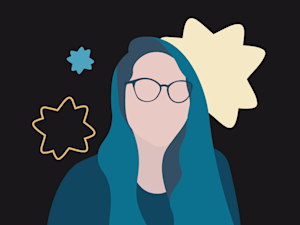
April 16, 2024
ADHD coach Jaye Lin was a gifted kid with undiagnosed ADHD. Now, she’s building communities and helping others cope with ADHD burnout.
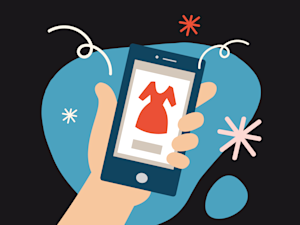
April 2, 2024
Writer Paulette Perhach had money coming in but struggled to keep it in her bank account. An ADHD diagnosis brought her struggles into perspective.
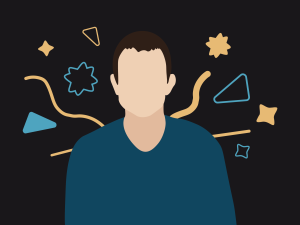
March 19, 2024
Eye to Eye founder David Flink is fighting the “just try harder” myth surrounding ADHD, dyslexia, and other learning and thinking differences.
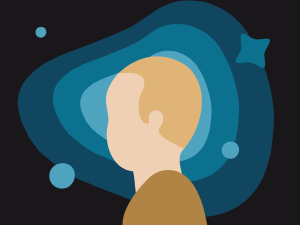
March 5, 2024
Peter Jones used to feel better saying he had a hearing problem rather than considering ADHD. Now, he knows he has ADHD and isn't afraid to say it.
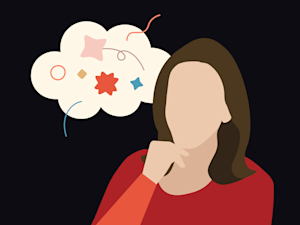
February 20, 2024
Before her ADHD diagnosis, ADHD coach Emily Weinberg thought she was just lazy. But in reality she was stuck in “analysis paralysis.”
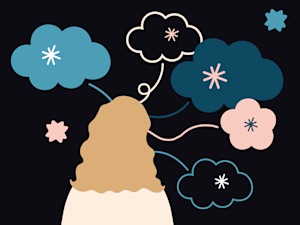
Carol Blumenstein was called an unteachable student. Now, she knows she has ADHD and dyslexia, and supports her five kids who learn differently, too.

January 23, 2024
Executive coach, actor, and former criminal defense attorney Ernest Anemone shares his ADHD story — and why he questions the term “attention deficit.”
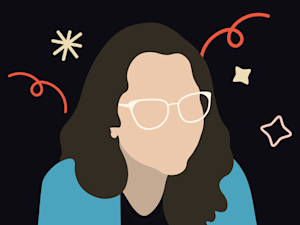
January 9, 2024
ADHD and post-traumatic stress disorder (PTSD) symptoms can look similar. And they can morph into what Hannah calls “a trauma ball of blame.”
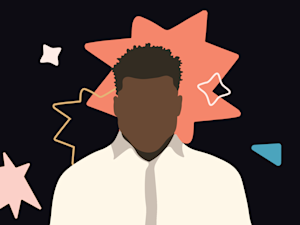
December 26, 2023
Livingston Steele was diagnosed with ADHD about a year into working at Understood.org. His experience and work have given him immense empathy for people with ADHD.
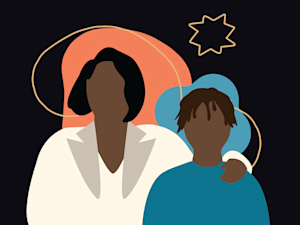
December 12, 2023
Wendy Zanders is a decluttering coach with ADHD. Find out how she got into organizing, and get a few tips for yourself.

